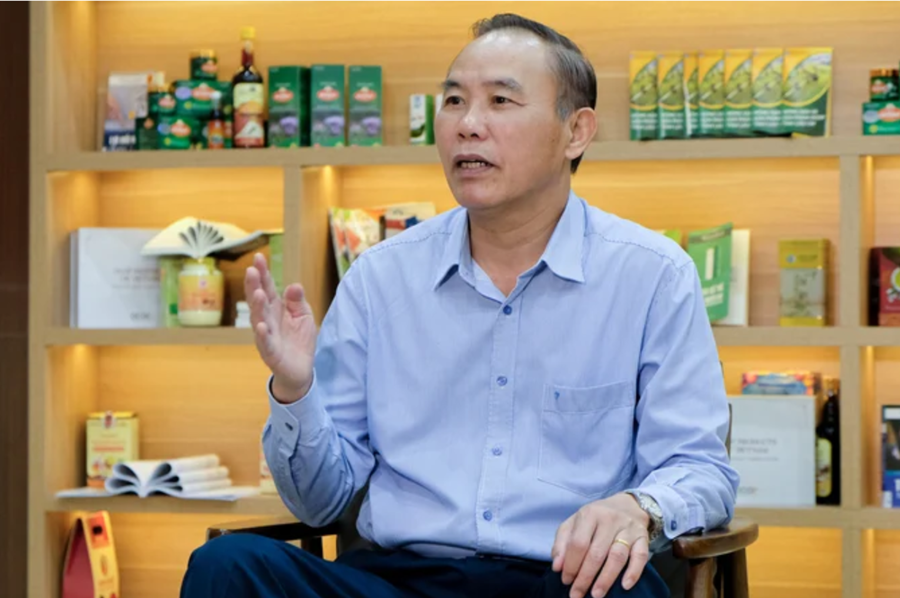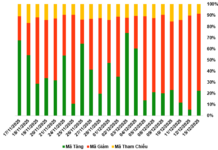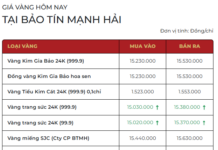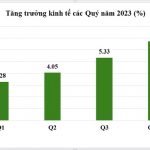On July 31, Deputy Minister of Agriculture and Rural Development Phung Duc Tien met with the press to share information on the ministry’s achievements in the first seven months of 2024.
PRODUCTION AND EXPORTS ACHIEVE IMPRESSIVE RESULTS
During July, the ministry focused on guiding local authorities to accelerate the progress of rice planting for the upcoming autumn-winter crop, while also tending to and harvesting the early summer-autumn crop. Efforts were made to prevent plant and animal diseases, with a particular focus on controlling and preventing forest fires.
Aquaculture remained stable, and strict regulations were implemented to combat IUU fishing. Regarding climate change and natural disasters, such as saltwater intrusion and flooding, which caused damage to thousands of hectares of rice, Deputy Minister Tien affirmed that the Ministry of Agriculture and Rural Development had made accurate predictions and provided precise instructions. Only a few localities that did not follow the ministry’s recommendations suffered adverse effects. The application of technical measures recommended by the ministry helped maintain stable rice production during this period.
Reporting on the agricultural production results for the first seven months, Deputy Minister Tien shared that the country had cultivated 6.25 million hectares of rice, an increase of 0.2% compared to the same period last year. A total of 3.82 million hectares were harvested, representing a 1.3% increase, with an average yield of 65.6 quintals per hectare, a 0.5-quintal increase. The rice production from the harvested area reached 25 million tons, a 2% increase. In the field of forestry, 137,800 hectares of forests were planted, a 3.6% increase, and the volume of exploited wood reached 11.9 million cubic meters, a 7.1% increase. In terms of aquaculture, the total output was 5.2 million tons, a 2.6% increase, including 2.3 million tons from capture fisheries, a 0.9% increase, and 2.9 million tons from aquaculture, a 3.9% increase.

“It can be seen that in the first seven months of 2024, the production and business activities in the agro-forestry-aquaculture sector remained stable. Plant and animal diseases were largely controlled, minimizing losses and ensuring a sufficient supply of goods, especially food, for domestic consumption and export. The solutions to open up markets and sign new orders have been effective, with a total export turnover of agricultural, forestry, and aquatic products reaching 34.27 billion USD, an increase of 18.8% compared to the same period last year.”
Regarding the export of agricultural, forestry, and aquatic products to various markets in the first seven months of 2024, Deputy Minister Tien reported that all markets experienced growth. The United States, China, and Japan remained the three largest export markets. As a result, the export turnover of key products was higher than in the same period last year, including wood and wood products (8.7 billion USD), coffee (3.5 billion USD), rice (3.2 billion USD), cashew nuts (2.3 billion USD), fruits and vegetables (3.8 billion USD), shrimp (2 billion USD), and tra fish (1.02 billion USD).
Some agricultural products also witnessed higher export prices compared to the previous year, such as rice (632 USD/ton, a 18% increase), coffee (3,669 USD/ton, a 52% increase), rubber (1,555 USD/ton, a 15% increase), and pepper (4,665 USD/ton, a 45% increase).
In terms of new rural development, as of July 31, 2024, approximately 78% of communes nationwide met the new rural standards. There were 2,146 advanced new rural communes (an increase of 31 communes compared to June 2024) and 465 model new rural communes (an increase of 2 communes compared to June 2024). To date, there have been 287 new rural districts, and 22 provinces have achieved 100% of their communes meeting the new rural standards.
As of July 31, 2024, the country has recognized 13,658 OCOP products with a 3-star rating or higher, involving 7,643 entities. There are 100 unions of cooperatives, 21,139 agricultural cooperatives, and 34,555 cooperative groups nationwide.
Regarding investment in construction in 2024, the ministry was allocated 9,935.3 billion VND (including 8,428.7 billion VND in domestic capital and 1,506.6 billion VND in ODA). As of July 31, the estimated disbursement reached 5,392.3 billion VND, equivalent to 54.3% of the yearly plan (compared to the national average of 33.9% and 41.5% for ministries and sectors).
FOOD DEMAND REMAINS GUARANTEED
Regarding the livestock sector, Deputy Minister Tien reported that as of the end of July 2024, the pig herd increased by 3%, the poultry flock increased by 2.6%, the buffalo herd decreased by approximately 3.6%, and the cattle herd decreased by about 0.4% compared to the same period last year. The livestock production results for the first seven months of 2024 showed an increase compared to the previous year, with meat production reaching 4.8 million tons, egg production exceeding 20 billion, and milk production reaching 1.3 million tons.
“Currently, there are nearly 30 million pigs and 562 million chickens in the country, ensuring sufficient food supply from now until the end of the year. The ministry plans to organize a conference on pig farming development in early August to ensure supply and promote exports,” said Deputy Minister Tien.
“I recently inspected some farms in Hoa Binh province, where three pig farms were located on the same plot of land. The two farms at either end that had vaccinated their pigs against African swine fever were unaffected, while the farm in the middle, which had not vaccinated its pigs, lost its entire herd.”
Mr. Phung Duc Tien, Deputy Minister of Agriculture and Rural Development.
Regarding the African swine fever, Deputy Minister Tien stated that in the past, some northern localities, such as Bac Kan, Lang Son, Quang Ninh, Hai Phong, and Hoa Binh, had experienced outbreaks. In all cases, the disease occurred in herds that had not been vaccinated, while vaccinated herds remained largely unaffected.
“African swine fever is a disease present in many countries, and Vietnam has gained experience in dealing with it since 2019. Vaccination against African swine fever is of utmost importance, but vaccination rates have been limited. Therefore, localities need to step up communication efforts to raise awareness among pig farmers about the effectiveness of vaccines in protecting their herds,” requested Deputy Minister Tien.
Regarding the key tasks for the remaining months of 2024, Deputy Minister Tien emphasized the need to focus on disbursing public investment to improve the sector’s infrastructure, thereby creating linkages and connections from production to the market. Another critical task is controlling and preventing plant and animal diseases, especially with small-scale production, long borders, and vibrant trade.
Additionally, the ministry will promote the application of scientific and technological achievements in agriculture to drive the production of new, high-quality, competitive, and high-value-added products across all fields.
To increase the value of agricultural products, the ministry will focus on attracting more businesses to participate in value chains and promoting trade to expand markets, aiming to build strong brands that match the volume and quality of Vietnamese agricultural products.
Bình Thuận’s Dragon Fruit: A New Path for Sustainable Agriculture and Reduced Emissions
The initial successes in growing dragon fruit and reducing greenhouse gas emissions, as well as carbon footprint tracking in Binh Thuan, are evidence that Vietnam has, is, and will be able to apply innovative approaches to develop sustainable agriculture, adapting to climate change…
Vietnam Economy 2024: 8 Drivers for Growth
Vietnam’s economy in 2023 has achieved remarkable accomplishments despite facing challenges. To ensure sustainable development, it is crucial to identify the bright spots, understand the current reality, and anticipate new factors and drivers that will impact the economy. This will enable us to provide effective solutions for 2024 and the years ahead.






































